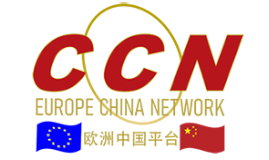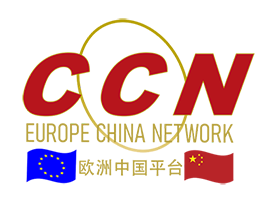Supporting public health in Europe
The EU complements national health policies by supporting local EU governments to achieve common objectives, pool resources and overcome shared challenges. In addition to formulating EU-wide laws and standards for health products and services, it also provides funding for health projects across the EU.
EU health policy focuses on protecting and improving health, giving equal access to modern and efficient healthcare for all Europeans, and coordinating any serious health threats involving more than one EU country. Disease prevention and response play a big part in the EU’s public health focus. Prevention touches many areas such as vaccination, fighting antimicrobial resistance, actions against cancer and responsible food labelling.
Two dedicated agencies support national governments on health issues. The European Centre for Disease Prevention & Control assesses and monitors emerging disease threats to coordinate responses. Meanwhile, the European Medicines Agency manages the scientific assessment of all EU medicines’ quality, safety and efficiency.
https://europa.eu/european-union/topics/health_en
Health
EU Cohesion Policy invests in health, a key asset for regional development and competitiveness, in order to reduce economic and social disparities. Investment may address a number of different areas such as Europe’s ageing population, healthcare infrastructure and sustainable systems, e-health, health coverage, and health promotion programmes.
Health is eligible to receive support under several of the eleven priorities for Cohesion Policy in 2014-2020, including thematic objectives 2 – ICT, 3 – SMEs, 8 – Employment, 9 – Social Inclusion and 11 – Institutional Capacity.
ESI Funds investments in health are closely linked with the health policy framework, including needs assessment and cost-effectiveness.
An important principle of the European Structural and Investment Funds for 2014-2020 is integrated funding and programming. This serves not just to provide improved coordination, but also to achieve integrated development. In the health sector, integrated funding can help ensure the more effective interlinking of actions to address problems. The following key areas can by funded by the European Regional Development Fund (EDRF) and the European Social Fund (ESF):
- European Regional Development Fund – health infrastructure and equipment, e-health, research and support to SMEs.
- European Social Fund – health activities linked to active and healthy ageing, health promotion and addressing health inequalities, support to the health workforce and strengthening public administration capacities
https://ec.europa.eu/regional_policy/en/policy/themes/health/
EU Health Policy
Overview
EU countries hold primary responsibility for organising and delivering health services and medical care. EU health policy therefore serves to complement national policies, and to ensure health protection in all EU policies.
EU policies and actions in public health aim to:
- Protect and improve the health of EU citizens
- Support the modernisation of health infrastructure
- Improve the efficiency of Europe’s health systems.
Strategic health issues are discussed by representatives of national authorities and the European Commission in a senior-level working group on public health. EU institutions, countries, regional and local authorities, and other interest groups contribute to the implementation of the EU’s health strategy.
European Commission’s role
The European Commission’s Directorate for Health and Food Safety (DG SANTE) supports the efforts of EU countries to protect and improve the health of their citizens and to ensure the accessibility, effectiveness and resilience of their health systems. This is done through various means, including by:
- Proposing legislation
- Providing financial support
- Coordinating and facilitating the exchange of best practices between EU countries and health experts
- Health promotion activities.
Legislation
The EU can adopt health legislation under the Treaty on the Functioning of the European Union: Article 168 (protection of public health), Article 114 (approximation of laws) and Article 153 (social policy). Areas where the EU has adopted legislation include:
- Patients’ rights in cross-border healthcare
- Pharmaceuticals and medical devices (pharmacovigilance, falsified medicines, clinical trials)
- Serious cross border health threats
- Tobacco
- Organs, blood, tissues and cells.
The Council of the EU can also address recommendations on public health to EU countries.
Investing in health
The Commission promotes investing in healthas a broader means of achieving smart sustainable and inclusive growth. This takes the form of:
- Promoting effective, accessible and resilient health systems
- Investing in health through disease prevention and health promotion
- Fostering health coverage as a way of reducing inequalities and tackling social exclusion.
https://ec.europa.eu/health/policies/overview_en
Sickness, maternity and paternity
The rules on sickness, maternity and paternity benefits are similar and apply to people insured in any EU country, Iceland, Liechtenstein, Norway, Switzerland or the United Kingdom.
Short stays and holidays
You have access to the healthcare, e.g. a doctor or a hospital, for medical care, that may become necessary during a holiday or any other temporary stay in one of these countries, under the same conditions as nationals of that country. This means that sometimes you will have to pay. Your European Health Insurance Card (EHIC) will help you prove your rights.
Learn more on our pages dedicated to the EHIC
Planned healthcare abroad
If you are travelling specifically to receive medical treatment, you need to obtain an authorisation (S2 form) from your health insurance institution before leaving.
Learn more on our pages dedicated to planned medical treatment
Living abroad
- You have the right to receive sickness benefits in kind, e.g. healthcare and medicines, in your country of residence, regardless of where you are actually insured. You are entitled to exactly the same treatment as nationals of that country.
- If you are insured in a different country than the one where you reside, you should register with the local healthcare institution of your place of residence. To do so you may need to ask the healthcare institution where you are insured for an S1 form that you will then present to the institution where you live. This is typically the case of pensioners retiring to a different country than the one that pays their pension and where they are insured. It is not necessary for temporary stays.
Find out about your rights country by country
Cash benefits
The country where you are insured is always responsible for paying your sickness, maternity or paternity benefits in cash, i.e. benefits that replace a wage that has been suspended due to sickness. These benefits will be paid according to the rules of the country where you are insured, regardless of where you are living or staying.
https://ec.europa.eu/social/main.jsp?catId=859&langId=en
Going to a doctor/hospital abroad
If you need to see a doctor or get hospital treatment during a trip to another EU country, having your European Health Insurance Card with you will make administration and reimbursement for public health care much easier.
Differences in national systems
Health care and social security systems vary from one EU country to another. In some countries you might have to pay the doctor or the hospital directly for treatment, even though you may not normally do that in your home country.
The European Health Insurance Card (EHIC) is only accepted by doctors or hospitals affiliated to the statutory health care system – private health care is not covered. If you use private health care, you may be able to claim reimbursement when you get home – but you should check your rights first, as reimbursement rules can vary.
Medicinal products
The EU legal framework for medicinal products guarantees high standards of quality and safety. It also promotes the functioning of the internal market, with measures that encourage innovation and competiveness in Europe. It is based on the principle that medicinal products may be placed on the market only following a marketing authorisation granted by the competent authorities. A large body of legislation has developed around this principle with the progressive harmonisation of requirements implemented across the whole European Economic Area.
Today, medicinal products are authorised at EU level by the European Commission or at national level by the competent authorities of EU countries. Special rules exist for the authorisation of medicinal products for paediatric use, orphan medicines, traditional herbal medicines, vaccines and clinical trials. Once placed on the market, the safety of a medicinal product continues to be monitored throughout its entire lifespan through the EU system of pharmacovigilance.
The European Medicines Agency, established in 1995, underpins the centralised authorisation procedure and supports coordination between national competent authorities. The Agency is the hub of a European medicines network comprising over 40 national regulatory authorities guaranteeing a constant exchange and flow of information regarding the scientific assessment of medicinal products in the EU.






















